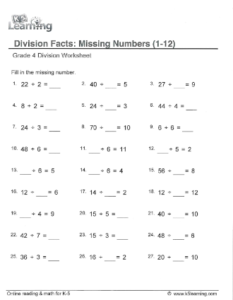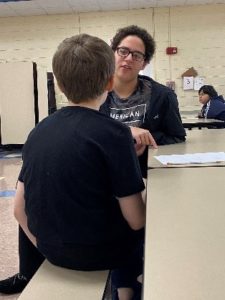My Day with the William Penn Teacher Academy
Rodel is committed to helping Delaware recruit, train, and retain a talented and diverse teaching workforce. A new project—funded by the Michael and Susan Dell Foundation and implemented by Rodel along with many of our partners—identified the Teacher Academy pathway as an opportunity to ensure every student in Delaware is exposed to high quality, well prepared, and diverse teachers throughout their educational journey.
So, I spent the day with Rodel Teacher Network member and William Penn Teacher Academy leader, Stephanie Diggins, to witness this program in real time and learn from the many individuals involved.
I arrived at the school early, earning me the chance to interview Kayla, a recent William Penn Teacher Academy graduate, who is currently studying elementary education at DelTech with the hope of teaching second or third grade in the future.
Kayla spoke passionately about the many important lessons she learned during her time in William Penn’s Teacher Academy like how to appropriately interact with students and classroom management. When the bell rang, Kayla packed up her laptop, grabbed her keys, and waved goodbye.
As she left, I remember feeling inspired by the fact that she still had a support system in Stephanie and the William Penn Teacher Academy. If there is one thing I have learned from working with the Rodel Teacher Council, it’s that having a support system is an essential factor in the teaching profession.
The hallways began rumbling and students—Edwin, Jalyn, Jessica, and Thomas—trickled into Stephanie’s classroom. However, they did not get comfortable or begin pulling out notebooks as I assumed they would. Instead, they eagerly stood by the door.
“They have tutoring today at New Castle Elementary,” Stephanie explained as we walked through the now silent hallway and climbed into the school’s vans parked by the football field.
 Once we arrived, Edwin, Jalyn, Jessica, and Thomas were paired off with an elementary school student and tasked with completing a spelling or math worksheet.
Once we arrived, Edwin, Jalyn, Jessica, and Thomas were paired off with an elementary school student and tasked with completing a spelling or math worksheet.
One of the elementary students was visibly upset¾puffy red eyes, tear stained cheeks, and a deep frown. I was quite nervous for Thomas, the Teacher Academy student who was paired with him. The two of them moved to a nearby table and started working their way through the sheet of fractions.
While the pairs were hard at work, I took the time to speak with Stephanie about what the next five years of the William Penn Teacher Academy looks like through her eyes.
 “Growth,” she declared. “Growth is a priority for me. I believe it’s the perfect way to get new teachers in the door. I take my students to speak about the program at middle schools so that we pique their interest early. And we’ve begun expanding to include early childhood education under the Teacher Academy program here so we can offer the full spectrum¾early ed through grade 12.”
“Growth,” she declared. “Growth is a priority for me. I believe it’s the perfect way to get new teachers in the door. I take my students to speak about the program at middle schools so that we pique their interest early. And we’ve begun expanding to include early childhood education under the Teacher Academy program here so we can offer the full spectrum¾early ed through grade 12.”
In the distance, another bell rang and it was time to head back to William Penn. I peeked over again at Thomas and his student, hoping their situation had improved. Much to my surprise, it had.
The math assignment laid completed off to the side and the elementary student was chattering, waving his hands and arms around to emphasize his point.
It was quite impressive to see how Thomas was able to rationally approach the upset elementary student and completely pull a 180 in about 45 minutes.
Later in the day, I spoke with Thomas, who plans to attend college in New York and become a world languages teacher.
 “You don’t always have a choice in whom you’re going to be teaching. What they are dealing with. Their personalities. Your classroom could be filled with a range of students. Learning on the go and being flexible makes me nervous about becoming a teacher so practicing now is important to me.”
“You don’t always have a choice in whom you’re going to be teaching. What they are dealing with. Their personalities. Your classroom could be filled with a range of students. Learning on the go and being flexible makes me nervous about becoming a teacher so practicing now is important to me.”
In the blink of an eye, we were back at William Penn. As Edwin, Jalyn, Jessica, and Thomas, headed off to their next class, I was introduced to Kim Bolden, who is leading the charge of establishing the early childhood education program within William Penn’s Teacher Academy. A 26-year Head Start veteran, Kim’s passion for early childhood education led her to get more involved in this expansion effort.
“I jumped at the opportunity to help others explore the profession and introduce students to all aspects of it,” she expressed. “There is a misconception that early childhood education is babysitting but it is so much more. And I want to show the students that they need to know about brain science, curriculum, salary, and career longevity. My goal is for them to be well equipped to enter any center or go further in college after graduating from this program.”
The first cohort of early childhood educators will begin courses in the fall 2020.
My day with William Penn’s Teacher Academy was slowly drawing to a close. The last class of the day, the Teacher Academy Internship, requires students to participate in a minimum of 10 hours of classroom observation as well as an approximately 13-week internship in a Colonial School District classroom.
The students—Amanda, Mallina, and Thomas—submitted their observations forms and selected their internship classrooms as I peppered them with my final questions for the day.
 “Why do you want to become a teacher?” Mallina smiled and shared, “My mom was a teacher. And I was the type who played school with my friends on the playground. I always knew I wanted to be a teacher so I’m going to Delaware State to study middle level education and receive my certification.”
“Why do you want to become a teacher?” Mallina smiled and shared, “My mom was a teacher. And I was the type who played school with my friends on the playground. I always knew I wanted to be a teacher so I’m going to Delaware State to study middle level education and receive my certification.”
“What would you tell someone who is considering the Teacher Academy pathway?” “Just go for it,” Amanda said with a laugh. “It gives a full view of what it’s like to be a teacher and helps you figure out if this is really the right path for you to take.”
The bell rang one last time and my whirlwind day with the Teacher Academy at William Penn was over.
Similar to most projects at Rodel, connecting with the work in person leaves a lasting impression. If what I witnessed at William Penn’s Teacher Academy is indicative of the efforts around the state, then I am confident future investments in this program will benefit Delaware students for generations to come.